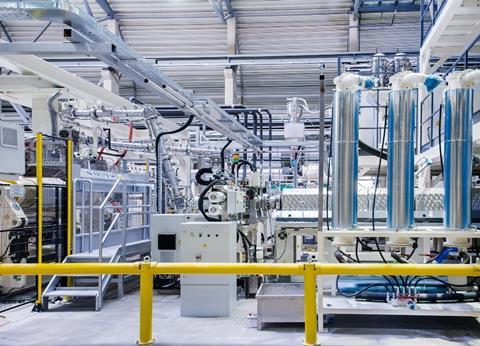
Staying close to consumer trends is crucial for progressive packaging manufacturers. The global mega trend for greater convenience shows no sign of slowing down1, while the growing understanding for the need for sustainable solutions across FMCG brands is increasingly both a legal2 and an emotional requirement.
As consumers across age, nationality and social demographics identify with being busier and more time-poor, so too do they want to maximise their hard-earned leisure time. Consumers are exhausted! Exhausted by choice, responsibilities, demands on their time. They are constantly accessible to colleagues, bosses, friends and family through smart phones and social media. Expectations to perform are high.
Consumers' stressful on-the-go lifestyles means that they value self-care more than ever before. People are starting to appreciate that being this busy means being more stressed, with a greater understanding of the negative impact on what stress does to our wellbeing. The growing trend for taking better care of ourselves3 – both of our physical and mental health - means that there are unparalleled opportunities for wellness brands to gain brand ambassadors; consumers that identify with their values, whether that's gluten-free, dairy-free, luxurious, organic – and they're happy to shout about it.
Expectation and entitlement
Sales of high-protein, vegan, low sugar treats are growing year on year, with new categories including gluten free savoury snacks and naturally-flavoured mineral waters also seeing huge increases. Self-aware consumers don't want a sugar- and carb-packed sandwich when they grab a break, but they also don't want to add to their busy schedule by making their own lunch before they endure their commute every morning. Booming bottled water sales4 also highlight how people know the value of staying hydrated without adding sugar (or sweeteners) to their regime, particularly as many GenX and Millennials are choosing to cut down on alcohol.
Yet consumers also want to be responsible to the planet. Nobody wants to say they don't care about the environment. Documentaries, reports and campaigns all highlight how packaging plays a part in forging a circular economy that we can all be proud of. The packaging of these high fat, low sugar snacks and bottles of mineral water needs to be smart and the whole packaging journey needs to be as carefully considered as the product within and the lifestyle without.
So why are recycling rates so low? Why do seemingly environmentally-conscious, educated people not consistently separate and recycle? Of course there is the important wider issue of a lack of standardised local waste collection, but if the habits of individuals collectively mean that there is simply not enough people putting their plastic water bottles in the right bin, what hope is there for meeting the strict EU Directive5 targets of 25% rPET in all plastic water bottles by 2025? Bottled water sales are booming, illustrating that consumers still want the convenience without taking the responsibility.
Win, win
Balancing these seemingly contradictory trends is a fascinating element of differentiation for packaging manufacturers and their R&D teams. The goal to create desirable, sustainable plastic packaging for bottled water is in everyone's interest; consumers, legislators, packaging manufacturers and beverage brand owners all have a part to play and a dog in the fight.
The multinational team across RETAL's global manufacturing is continually looking at ways to ensure that its products are lighter and smarter, with clever ways to make sure that the PET preforms, closures and containers it creates are taking part of the responsibility on board. From integrating state-of-the-art software so physical prototyping is unnecessary, to installing huge solar panel plants on its factories, to working closely with global beverage brands to guarantee that its plastic water bottles have tethered closures that helps to avoid contaminated recycling and increase their collection due to not being lost in general waste, RETAL is working on active ways to mitigate its impact.
RETAL's Sustainability Director Emmanuel Duffaut is vocal about how responsibility must be taken by all stakeholders at every step of the supply chain, with the plastic packaging manufacturer's great challenge also a great opportunity. Duffaut says, “By investing in the latest technology that allows us to create up to 100 per cent rPET food-grade packaging, creating lighter preforms that deliver on performance, committing to buying renewable energy wherever possible, and mitigating our carbon footprint, RETAL is showing how actively participating in the circular economy allows both convenience and sustainability to be achieved.”
Only by accepting that there is a specific dance we all need to perform to balance the conflicting energies of sustainability and desire for convenience can we appreciate that packaging has a responsibility – and a great potential – in both trends.
2 https://ec.europa.eu/environment/waste/packaging/index_en.htm
5 https://europa.eu/rapid/press-release_STATEMENT-19-1873_en.htm













